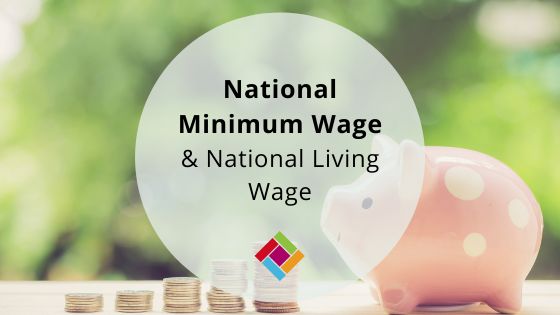
The National Minimum Wage and National Living Wage rates vary depending on the age of your employees, and change each April.
What is the National Minimum Wage?
The UK minimum wage is the hourly wage employers must pay workers. It’s legally mandated and varies by age and employment status. There are categories for adult workers, younger workers and apprentices and it applies to most workers (including part-time, full-time, temp and casual staff). The rate is reviewed annually by the Government and increases each April.
The UK National Living Wage is the mandatory minimum hourly pay for workers aged 21 and over, designed to ensure fair compensation reflecting living costs and economic conditions.
Rates
The Government has announced National Minimum Wage rates for 2025, including the National Living Wage. The new rates which will come into force from 1 April 2025 are as follows:
| 21 and over | 18 to 20 | Under 18 | Apprentice | |
| April 2024 (current rate) | £11.44 | £8.60 | £6.40 | £6.40 |
| April 2025 (new rate) | £12.21 | £10.00 | £7.55 | £7.55 |
From April 2025, the NLW for workers aged 21 and over will rise to £12.21 per hour, a 6.7% increase. For younger workers, the NMW will see substantial raises, with the 18-20 age group rate increasing by 16.3% to £10.00 per hour, and the 16-17 age group and apprentice rates both going up by 18% to £7.55 per hour. The accommodation offset rate, an allowable deduction for employers providing accommodation, will also increase by 6.7% to £10.66 per day.
What counts towards National Minimum Wage?
NMW pay is calculated on gross pay (before tax and National Insurance have been taken off). Gross pay includes the basic pay for the employee’s work and other types of pay which count towards the NMW. For example, sales commission, performance-related pay or other payments based on how well the employee does their job.
All businesses are required to pay it, regardless of size and industry. Workers cannot agree to be paid less than the NMW legally. It should be paid from the first day of employment, and there is no qualifying period.
Service charges, tips or gratuities cannot be counted towards the NMW nor can deductions made for items like uniform costs. It must form the employee’s base salary.
Who qualifies?
A range of workers are entitled to the minimum wage. These include:
- Full time and part time employees.
- Apprentices.
- Casual and temporary staff.
- Those on zero hours contracts.
- Agency workers.
The only types of worker not covered by minimum wage regulations include company directors, those who are self-employed by choice, volunteers by choice, those in the armed forces, those doing work experience as part of a course, those who are work shadowing and those under school leaving age.
Legal obligations for employers
Employers are legally obliged to comply with minimum wage laws (applicable to age group or apprentice status). Employers who fail to comply could face fines of up to £20,000 for each underpaid worker.
Employers are also required to:
- Pay the rates from the day they come into effect.
- Review and adjust payroll systems to ensure that all employees are paid from the first pay period after any changes.
- Keep accurate records of all employee wages and working hours for at least three years. This should include details of any deductions.
- Employees must receive a written statement of employment particulars (this includes details of their wage rates).
- All payslips must be itemised and show gross wages, deductions and net wages.
- Employers must not make deductions from wages that would reduce pay to below the minimum wage (except for specific reasons by law such as tax or NI contributions).
Apprentice rates vary, also depending on age and where they are in their apprenticeship. The Government website has the latest guidance.
If you’re unsure about wage rates, we can help. Call us for 15 minutes of free HR advice.